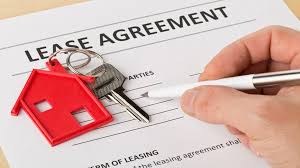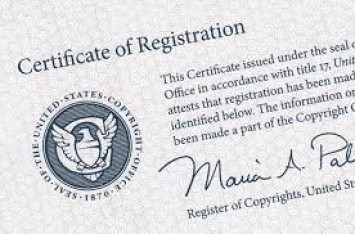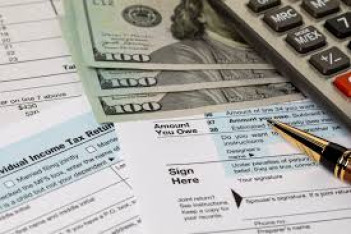Understanding Your Lease Agreement Before Renting in the U.S.
Renting a property in the United States involves numerous legal and practical considerations that tenants must understand thoroughly. One of the most crucial documents in the renting process is the lease agreement. This legally binding contract sets out the terms and conditions under which a tenant agrees to rent property from a landlord. At Legal Marketplace CONSULTANT, we emphasize the importance of reading and comprehending every clause within your lease to avoid unforeseen problems during your tenancy.
A lease agreement contains essential information about the rental property, obligations of both parties, payment details, and rights concerning maintenance and termination. Ignoring or misunderstanding lease terms can lead to disputes, financial loss, and legal complications. Therefore, potential renters must approach leases with attention to detail and seek legal advice if needed before committing.
Key Clauses to Pay Attention to in Your Lease
When reviewing a lease, certain clauses deserve extra scrutiny due to their significant impact on your rights and responsibilities as a tenant. Here are the principal areas that you should understand clearly before signing:
- Deposit and Fees: The lease should specify the amount of the security deposit, its use, conditions for return, and any non-refundable fees. Understanding how your deposit is protected and conditions for deductions helps prevent disputes upon moving out.
- Maintenance and Repairs: The document should clarify which repairs the landlord is responsible for and which maintenance duties fall on the tenant. Timelines for repairs and procedures to request them should also be outlined.
- Early Termination Policies: Learn about penalties, notice periods, and conditions under which early lease termination is allowed. Early termination can have financial consequences if not addressed properly.
- Occupancy Limits and Use Restrictions: The lease may impose limits on the number of occupants and the use of the property, such as prohibiting subletting or running a business.
- Privacy and Entry Rights: Understand how much notice the landlord must give before entering the property and in what circumstances entry is permitted, respecting your privacy rights.
- Renewal Terms: Conditions and procedures for renewing the lease should be clear, including any rent increase policies.
Why Written Terms Matter Over Verbal Agreements
In the realm of leasing property, written agreements hold paramount importance. While landlords or property managers might make verbal promises or assurances during negotiations, such oral statements are often not legally enforceable. Courts primarily rely on the written lease document to resolve disputes. Thus, tenants should ensure that all commitments, especially those regarding repairs, amenities, or special permissions, are explicitly included in writing within the lease.
Failing to obtain written confirmation can leave tenants vulnerable if the landlord refuses to honor verbal promises later. It is wise to request any agreements to be added as clauses or written addenda attached to the lease before signing. This approach provides security and clarity for both parties.
How to Handle Landlord Negligence and Privacy Violations
Sometimes landlords may neglect their responsibilities or infringe on tenants' rights, such as refusing necessary repairs or entering the property without proper notice. Tenants should take proactive steps to protect themselves in these situations.
- Document Everything: Keep records of all communication with your landlord, including emails, texts, and written requests for repairs or notices of violation. Take photos or videos of issues needing repair or damage.
- Know Your Local Housing Laws: Familiarize yourself with tenant rights and housing codes applicable in your city or state. Local housing authorities often have resources and enforcement powers to protect tenants.
- Contact Local Housing Authorities: When landlords violate lease terms or tenant protections, reporting to the local housing department or consumer protection agencies can initiate inspections and enforcement actions.
- Seek Legal Advice: Consulting a qualified attorney knowledgeable in landlord-tenant law can help you understand your options and draft communications to assert your rights effectively.
The Benefits of a Legal Review Before Signing
Renting without professional legal input can lead to preventable complications. A quick legal review of your lease agreement before signing can save you significant stress, time, and financial losses later. Lawyers or tenant advocacy groups can:
- Identify unfair or illegal lease provisions.
- Clarify ambiguous language and explain your rights and responsibilities.
- Suggest amendments or additional clauses to safeguard your interests.
- Advise on security deposit handling, rent increases, and dispute resolution mechanisms.
- Provide guidance related to state-specific landlord-tenant laws effective in 2025.
Investing in a thorough legal review is a prudent step toward a secure and smooth rental experience.
When to Seek Professional Legal Assistance
If you encounter problems during your tenancy, such as unaddressed repairs, wrongful eviction notices, discrimination, or contract disputes, professional legal assistance becomes critical. At Legal Marketplace CONSULTANT, we offer expert counsel to tenants facing housing challenges. Our team can:
- Evaluate your lease and situation to recommend actionable solutions.
- Communicate formally with landlords to advocate for your rights.
- Represent you in mediation, arbitration, or court proceedings when necessary.
- Help you understand complex legal jargon and tenant protections under 2025 regulations.
You can reach out to us easily through the communications provided in our bio or by sending a private message for confidential consultations.
Additional Tips for Renters in the United States
Beyond lease terms and legalities, successful renting involves practical considerations to protect your interests throughout your tenancy:
- Conduct a thorough inspection of the property before moving in, noting any existing damages.
- Keep a personal copy of your signed lease and all correspondence with your landlord.
- Pay rent on time and keep receipts or proof of payment.
- Respect community rules and maintain good communication with your landlord.
- Notify your landlord promptly about needed repairs or issues.
- Understand the procedures and deadlines for lease renewal or termination.
Navigating Landlord-Tenant Relations with Confidence
Establishing a positive and professional relationship with your landlord can ease many potential conflicts. Being proactive, respectful, and legally informed helps create a tenancy experience that is safe, stable, and stress-free. Always prioritize clear communication and maintain documentation for any agreements or requests.
Thoroughly reading and understanding your lease agreement before renting in the United States is an indispensable step to protect your rights and ensure a smooth tenancy. Paying close attention to deposit rules, maintenance responsibilities, and termination clauses helps avoid misunderstandings and legal troubles. Written terms take precedence over verbal promises, so insist on clear documentation of all agreements. In cases of landlord negligence or privacy violations, proper documentation and timely contact with local housing authorities can provide recourse.
A pre-signing legal review by knowledgeable professionals can save you from costly mistakes and stress in the future. Should you require expert legal assistance, Legal Marketplace CONSULTANT is here to provide guidance through our communication channels in the bio or via private message.
Legal Marketplace CONSULTANT specializes in comprehensive legal services for tenants and landlords across the United States. Our experienced attorneys provide expert advice, contract reviews, dispute resolution, and personalized support tailored to 2025 landlord-tenant laws. Connect with us for reliable, professional assistance with all your rental legal needs.































